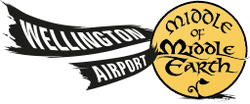Friday 2 March 2012
Wellington
Airport is pleased to confirm the removal of the
International Departure Fee for passengers from 1 April
2012.
“Improving the traveller experience is important to us and removing the departure fee will make it easier for all passengers travelling internationally. Taking away the need to join the queue and pay the fee is a big step forward,” said Chief Executive Officer, Steve Sanderson.
The International Departure Fee, known to many as the Departure Tax, has been in place at Wellington Airport for over 20 years.
After a year of extensive consultation with airlines and the Board of Airline Representatives, Wellington Airport issued its final pricing document today containing the charges airlines will pay for using the Airport’s facilities and infrastructure for the next five years from 1 April 2012. The removal of the International Departure Fee is part of the final pricing document.
The new prices ensure that travel to and from Wellington is competitive, with international charges set to reduce by 39% over the five year period. The reduction in international charges combined with incentives for growth is expected to help promote new routes and additional services to the Capital.
“With the added benefits of its central city location, the final prices place Wellington’s charges in between Auckland and Christchurch Airports and in the lower range of Australasian Airports in terms of cost per passenger for the five year period” said Mr Sanderson. “This is a productive and workable outcome for airlines, passengers and our shareholders, which include all Wellington City ratepayers.”
The Airport has also confirmed its plan to invest $65m in aeronautical assets over the five-year period. Following the opening of the Airport’s dual use terminal, The Rock, which has been ranked 4th best in the world, the next significant capital development will be the Southern Terminal expansion. This will provide increased gate lounge space and new toilets. The expansion of the Southern Apron will increase aircraft capacity to accommodate growth.
“The new price structure means international charges will reduce by $1.72 per passenger each year in real terms. Domestic charges will increase on average by 74c each year. Overall, the average fees per passenger will increase by 41c or 3.6% per year in real terms,” said Chief Commercial Officer, Matt Clarke.
The Airport Authorities Act provides a legal framework for the Airport to set sufficient price levels every five years to operate the Airport and provide a fair return on the funds invested to Infratil’s 16,000, mainly New Zealand, shareholders and Wellington City ratepayers. The Airport Authorities Act legislation was retained in Parliament’s recent consideration of the Commerce Act. The Airport’s financial returns will be reviewed by the Commerce Commission in 2012.
About Wellington Airport
• Wellington Airport was
named Australasia's Leading Airport at the 2011 World Travel
Awards.
• The Airport’s new terminal The
Rock is ranked the 4th best terminal in the World and has
won 13 architecture and construction awards including the
Transport category at the prestigious World Architecture
Festival in Barcelona and the Supreme Award at the
Registered Master Builders Awards.
• As a
vitally important piece of national infrastructure,
Wellington Airport provides a significant ongoing
contribution to the region’s economy as well as delivering
a return to the city and shareholders on the funds
invested.
• Wellington Airport is owned by
Wellington City Ratepayers and Infratil’s 16,000 mainly
New Zealand based shareholders.
• In the year
ended March 2011, the airport paid a $9m dividend to
Wellington City Council which is the equivalent of $120 for
each and every ratepayer.
• Of New Zealand’s
major airports, Wellington Airport is the most cost
efficient. Its proximity to the CBD also saves travellers
time and money.
• By 2030, passenger numbers
are expected to double to 10 million. This growth will
require a $450m investment in essential infrastructure. The
increase will enable Wellington Airport to generate 11,500
new jobs in the region, sustaining 21,000 full time
positions and increasing its contribution to the regional
economy to $1.6b a year with flow-on impacts of $3.1b.
• Over the five year pricing period,
Wellington Airport will invest $65m in the aeronautical
assets required to accommodate anticipated growth and
maintain the facility.
ENDS




 Gordon Campbell: On Why We Can’t Survive Two More Years Of This
Gordon Campbell: On Why We Can’t Survive Two More Years Of This NZ Government: Drive Safely This Summer
NZ Government: Drive Safely This Summer Northland Inc: Game-Changing Investment For Northland - Resilience Fund Allocates $250,000 To Health Simulation & Training Centre
Northland Inc: Game-Changing Investment For Northland - Resilience Fund Allocates $250,000 To Health Simulation & Training Centre Interchurch Bioethics Council: Church Bioethics Agencies Express Dismay at the Rushed Consultation Period for Submissions on the Gene Technology Bill
Interchurch Bioethics Council: Church Bioethics Agencies Express Dismay at the Rushed Consultation Period for Submissions on the Gene Technology Bill New Zealand Police: More Than $2.5m Worth Of Assets Restrained In Undeclared Tobacco Case
New Zealand Police: More Than $2.5m Worth Of Assets Restrained In Undeclared Tobacco Case SPCA: Survey Shows Government Lacks Mandate To Repeal Live Export Ban
SPCA: Survey Shows Government Lacks Mandate To Repeal Live Export Ban Peace Action Ōtautahi: Bridge Of Remembrance Peace Protest
Peace Action Ōtautahi: Bridge Of Remembrance Peace Protest


